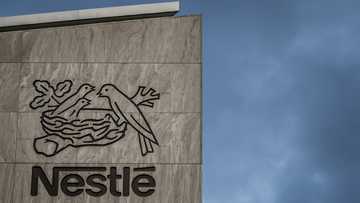Henzodaily.ng journalist Ridwan Adeola Yusuf has over 9 years of experience covering governance in Nigeria.
FCT, Abuja – Mohammed Idris, the minister of information and national orientation, on Tuesday, February 11, reaffirmed the Bola Tinubu administration’s ‘commitment’ to lowering the cost of food commodities.
Idris said the government is determined to reduce the prices of food through massive investments in agricultural production.
Tinubu’s government rules out price control.
Photo credit: @PBATMediaCentre
Source: Twitter
Idris stated this in Abuja at a press briefing to kick-start the ministerial briefing Session for 2025.
The minister emphasised that while the federal government will not impose price controls on food commodities, it remains focused on reducing prices by boosting agricultural production and increasing supply.
Niger State-born Idris said:
“In the past, we used to have these commodity boards where prices were fixed but in the spirit of free market and encouraging entrepreneurship, especially within the agricultural value chain, government didn’t feel that it was necessary for them to begin to control prices. Now, what government is doing is to ensure that there is massive production of food items and it’s a supply and demand issue.

Read also
Value of Donald Trump and Elon Musk-related crypto coins crashes to new rate
“Once you have whatever you need in abundance, the tendency is that the price will automatically come down.”
Nigerians’ struggle with essential food items
Food inflation has become a glaring reality in Nigeria. According to a 2024 report by the Nigerian Bureau of Statistics (NBS), the price of 1kg of tomatoes skyrocketed by 320.67 per cent year-on-year, rising from N547.28 in June 2023 to N2,302.26 in June 2024.
In the same vein, other staple foods suffered tremendous price increases in the same period. The price of yam surged by 295.79 per cent, Irish potatoes by 288.50 per cent, plantain by 224.36 per cent, beans by 252.13 per cent, and rice by 179.97 per cent—underscoring the rising cost of basic food items.
Nigerians, known for their vocal nature, spurred the government into action, leading to a decrease in the cost of a bag of rice in April 2024. However, the relief was short-lived, as the prices of goods have since climbed back up.

Read also
Nestle share slump adds pressure on new boss
Nigerian govt speaks on cause of food scarcity
Earlier, Henzodaily.ng reported that Abubakar Kyari, the minister of agriculture and food security, linked the food scarcity, increasing cost of food, and general hardship in Nigeria, to the smuggling of food across the country’s borders.
Kyari also pinned the problems to the Naira redesign policy facilitated by the sacked former governor of the Central Bank of Nigeria (CBN), Godwin Emefiele.
PAY ATTENTION: Сheck out news that is picked exactly for YOU 
Source: Henzodaily.ng
